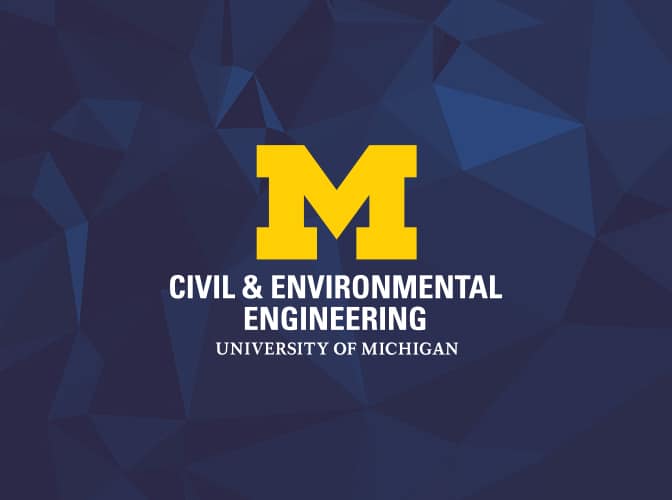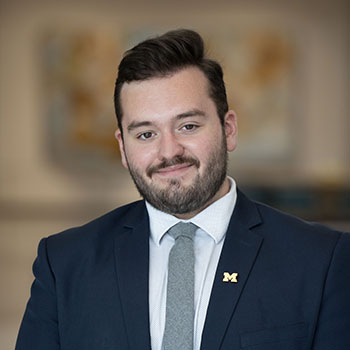
PhD students receive ITiMS Fellowships
Students received ITiMS Fellowships through the University of Michigan’s School of Public Health for the 2019-2020 school year.

Students received ITiMS Fellowships through the University of Michigan’s School of Public Health for the 2019-2020 school year.
Two CEE PhD students, Shilva Shrestha and Kathryn Langenfeld, along with School of Public Health PhD student Leon Espira, have received the Integrated Training in Microbial Systems (ITiMS) Fellowship through the School of Public Health.
The ITiMS fellowship provides two years of funding to University of Michigan doctoral students conducting research on microbial systems. The interdisciplinary program provides training to advance participants’ research in laboratory sciences, population sciences and mathematical modeling. The aim of the fellowship is to train future scientists who will design and implement novel prevention, diagnostic and treatment strategies stemming from a deep understanding of the impact of microbial communities on human and environmental health.

Kathryn Langenfeld investigates the role of phages in the dissemination of antibiotic resistance genes to the environment from wastewater treatment plants. Bacteria are able to share genes horizontally to surrounding bacteria. One mechanism of horizontal gene transfer is transduction, where phages incorporate genes from their bacterial host and spread those genes to the subsequently infected bacteria. Langenfeld will quantitatively sequence phage nucleic acids to analyze the resistance genes harbored within phages and their absolute abundance throughout a wastewater treatment plant. She will develop a model to estimate the rate of transduction and the impact of phage-host interactions on the dissemination of resistance genes. Langenfeld is advised by Assistant Professor Krista Wigginton.

Shilva Shrestha’s research focuses on recovering high-value chemicals from organic waste, particularly brewery waste. She is focusing on brewery waste because the increase in the number of breweries in the U.S. is creating considerable challenges for waste management. In rural communities, breweries are often the largest producers of wastewater to be treated by municipal water resource recovery facilities, with such discharge fees constituting 8-22% of the total utility operating costs. Implementing biotechnologies to recover resources from waste provides opportunities for revenue in addition to reduced environmental impacts through waste treatment. Shrestha is working towards developing a technology that relies on anaerobic fermentation by a mixed-culture microbial community for recovering medium chain carboxylic acids (MCCAs) from brewery waste. MCCAs are used as platform chemicals serving as building blocks for production of liquid fuels, and several other industrial and agricultural products. Shrestha is advised by Professor Lutgarde Raskin.

Leon Espira’s research focuses on estimating disease risk and understanding how disease exposure pathways change following treatment of urban wastewater used for crop irrigation. He applies an interdisciplinary approach coupling laboratory methods, spatial analysis and mathematical modeling via Quantitative Microbial Risk Assessment (QMRA) models. Espira’s study area is situated in the Mezquital Valley, an agricultural valley that receives untreated wastewater from Mexico City through a series of uncovered canals. The wastewater is used for irrigation, which leads to high levels of pathogen exposure either through direct contact by farmers or indirect contact by community members. Espira’s co-advisor for ITiMS is CEE Professor Nancy Love.

Marketing Communications Specialist
Department of Civil and Environmental Engineering